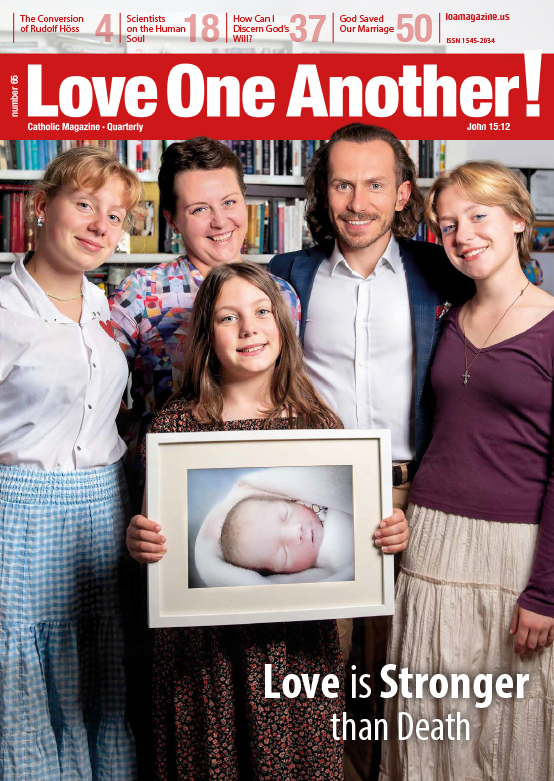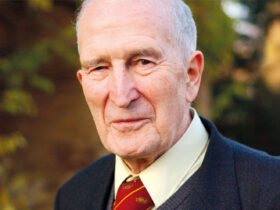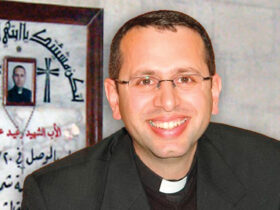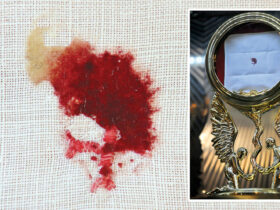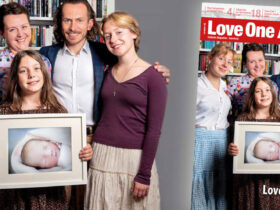Another Form of Violence

Blessed John Paul II warned that the rejection of moral norms always leads to a disguised form of totalitarianism. His writings continue to remind us that ethical relativism has brought about radical violations of freedom along with a rise in criminal acts. (cf. Evangelium vitae, 70).
John Paul II warned us against radio and TV stations and Internet websites that have become instruments of violence. “We are faced with another form of violence, which is not necessarily physical violence. Another form of violence, another form of power!” (Homily, June 6, 1991). These instruments of violence seek to separate man from Christ. They “push [man] toward all that is sensual, toward all those forms of desire, all those conveniences in the area of the senses, in the area of sexual life, in the area of consumption” (Homily, June 7, 1991). Today we can see the extent to which the organs of mass communication are at the service of falsehood and moral degeneration. Constantly seducing people with the mirage of freedom from God, the Gospel, the Ten Commandments, and moral norms, the mass media call for the legalized killing of unborn children. They promote euthanasia, contraception, homosexualism, de facto relationships, and divorce. They corrupt children and youth by glamorizing a lifestyle based on satisfying every desire and limitless consumption. Urging us to free ourselves from Christ and His teaching, the media distort the truth about the freedom to which Christ liberates us. They lead us in the way of freedom from Christ, which always ends in a terrible enslavement of the mind and soul by the powers of darkness—i.e. a state of spiritual death. Thus, under the slogans of freedom from Christ, liberalism, and tolerance, there spreads the culture of death, where there is neither love, nor freedom, but only crude selfishness, boorishness, and hatred of those who think differently.
Democracy can only exist on the basis of the ethical values that Jesus Christ gave to us. John Paul II warned that the rejection of moral values always leads to a disguised form of totalitarianism. He reminded us that ethical relativism has brought about radical violations of freedom along with a rise in criminal acts (Evangelium vitae, 70). Jesus pronounces a terrible “woe unto” against all those who corrupt people’s consciences and call evil good and good evil: “Woe unto the world because of occasions of stumbling!…woe to that man through whom the occasion cometh!”(Mt 18: 6-7). The wave of moral decay being unleashed by the organs of mass communication is infinitely more dangerous and menacing than the worst of natural floods.
Our Blessed Mother, who appeared at Fatima, told Bl. Jacinta that the sins leading most souls to the reality of hell were the sins of impurity. Hell is absolute selfishness—absolute lack of love. Sins of impurity, freely and willingly committed, are the more spiritually toxic in that they destroy our aptitude for love, deepen our selfishness, enslave and make us dependent, just as do narcotics and alcohol. We have been created in the image and likeness of God, and called to love. We must learn to love even as God loved us. We are to receive the gift of God’s love and convey it to others. Man in his entirety, including his sexual dimension, must be subject to the law of love. Only in the sacrament of marriage does Christ give a man and woman the right to express their mutual love through their sexuality; the right to become “two in one body,” thus enabling God to call new human beings into existence. Only in the sacramental marital bond can sexual intimacy express the total, unselfish, and enduring giving of one’s self to the person of one’s spouse. Such marital intimacy both sanctifies and localizes the experience of God’s love in the mutual love of the spouses. That is why God gave us the Sixth and Ninth Commandments, so as to show us the path of growing in love.
Sexual pleasure must be subject to the law of love, that is, to the unselfish and total gift of the self in the loving marital act. Provoking sexual pleasure for its own sake is a focusing on the self, which leads to the deepening of selfishness, and thus to a contradiction of the logic of love—the irrevocable, unselfish, and total gift of the self. Thus masturbation, when it is committed freely and deliberately, the consumption of pornography, premarital sex, petting, adultery, the use of contraception, etc., are a breach of the sixth and ninth commandments. They are acts that destroy love and deepen selfishness. Thus they are grave sins, which need to be confessed without delay.
From John Paul II’s theology of the body
John Paul II tells us that after the first sin, shame took root in the heart of man and woman. Sin deformed the “image of God” not only in man himself but also in the interpersonal relations between a man and a woman. John Paul II stresses that the shame of nakedness relates both to the body and to man’s spiritual dimension, for through sin he alienated himself from “that Love, which was the source of his first self-giving.” “It is the shame of the woman ‘confronting’ man, and of the man ‘confronting’ woman; a mutual shame, which forces them to cover their nakedness, to cover their bodies from each other, to remove from the man’s sight that which is the visible sign of her womanhood and from the woman’s that which is the visible sign of his manhood. This was the direction their shame took after the first sin, when ‘they saw that they were naked,’ as Genesis (3: 7) relates.
“This shame,” explains John Paul II, “reveals the difficulty of feeling at one with one’s own body—a difficulty not experienced in man’s primeval state of innocence. This is how we may understand the words, ‘I was afraid, because I am naked,” which reveal the fruits of the tree of knowledge of good and evil within man. These words disclose, so to speak, the constitutive rupture within the human person, the shattering, if you will, of man’s primeval spiritual-bodily unity. For the first time man realizes that his body has stopped drawing on that spiritual power which formerly raised it to the level of God’s image. His first experience of shame shows signs of his being degraded by his body. There lurks within him the germ of that contradiction which will accompany ‘historical’ man throughout all his subsequent wanderings. St. Paul writes: ‘For I delight in the law of God after the inward man: but I see a different law in my members, warring against the law of my mind’ (Rom 7: 22-23). “The body that opposes the spirit and does not wish to be subject to it threatens the spiritual cohesion of the human person. The desires of the body represent a particular threat to the entire structure of self-possession and self-mastery, which constitutes the human person.” Since we are tainted by the results of original sin, covetousness is rooted in us and we are unable to control our bodies “with the same ease and ‘naturalness’ that man enjoyed in his primeval innocence” (Catechesis, May 28, 1980). Mastery over our passions and lusts must be achieved by working on ourselves on a daily basis.
The Movement of Pure Hearts
There is no hopeless situation for those who in all their weakness, with all their sins, dependencies, and wounds entrust themselves every day like children to Christ and strive to live in accordance with the demands of His love. Trust in Jesus who invites you to join the spiritual community of the Movement of Pure Hearts. There you will undertake the unique adventure of growing in love, forming your character, and winning the gift of a pure heart. To join the ranks of this great spiritual community, first make a sacramental confession, then, having confessed your sins, receive Jesus in Holy Communion and entrust yourself wholeheartedly to Him in the words of the MPH Prayer of Consecration:
“Lord Jesus, I am thankful that You love me with a love that rights the greatest wrongs and heals the most hurtful wounds. I offer You my memory, my mind, my soul, my body, my sexuality. I pledge not to engage in sexual acts until I am united with my spouse in the Sacrament of Marriage. From this day forth, I will not read, buy, or look at pornographic materials. [Here, girls may wish to add: I pledge to dress modestly and in no way to arouse lustful thoughts or desires in others.] I solemnly promise to meet You every day in prayer, scriptural meditation, frequent reception of Holy Communion, and Adoration of the Blessed Sacrament. I also pledge to avail myself regularly of the Sacrament of Penance, not to give in to discouragement, and to pick myself up promptly every time I fall into sin. Dear Jesus, teach me the practice of self-discipline and to control my sexual desires and feelings. Give me the courage to resist the easy way in my daily walk through life. Help me to avoid everything that weakens and enslaves the will: nicotine, alcohol, and drugs. Teach me to place love at the very center of my life. Mary, my Mother, guide me in my journey of faith. Lead me to the very source of Love—to Jesus, that I may trust and believe in Him alone. After the example of Blessed John Paul II, I desire to entrust myself entirely to you: Totus Tuus, Mary! Blessed Caroline, procure for me the gift of a pure heart. Amen!”
Say the words of this prayer every morning. This way you will remember the MPH promises and put them into practice. Never give in to discouragement. Pick yourself up every time you fall into sin. If the sin is serious, be sure to go to confession at once, so as to remain in a state of sanctifying grace. You need to organize your day, allocating regular times for prayer, work, recreation, and rest. Remember, Satan delights in disorder, for then he has an easier time leading souls astray. Draft a daily plan and stick to it religiously. Self-discipline and perseverance are absolutely necessary. Without working on yourself it is impossible to live by faith on a daily basis or to mature in love. Be demanding of yourself. Resist your selfish desires and reject everything that has the “appearance of evil” (1 Thess 5: 22). Do not give in to your changing moods and feelings. Everything of great value is achieved through hard work, effort, and self-denial. Remember also that reading Love One Another Magazine is a very important part of your regular formation in the Movement of Pure Hearts.
Be sure to inform LOA of your decision to join MPH. Send us your particulars (first and second name, address, birth date, and the date you joined MPH. We in turn will enroll you in our Book of Pure Hearts and send you formational materials along with our special blessing. Jesus wants you to write down and send us your testimonies. Share the treasure of your faith with others.
We remember you in our daily prayers, especially while praying the rosary and the chaplet of Divine Mercy. All my blessings!
Fr. M. Piotrowski SChr & the editorial team
Do you like the content published on our website?
Support us!
